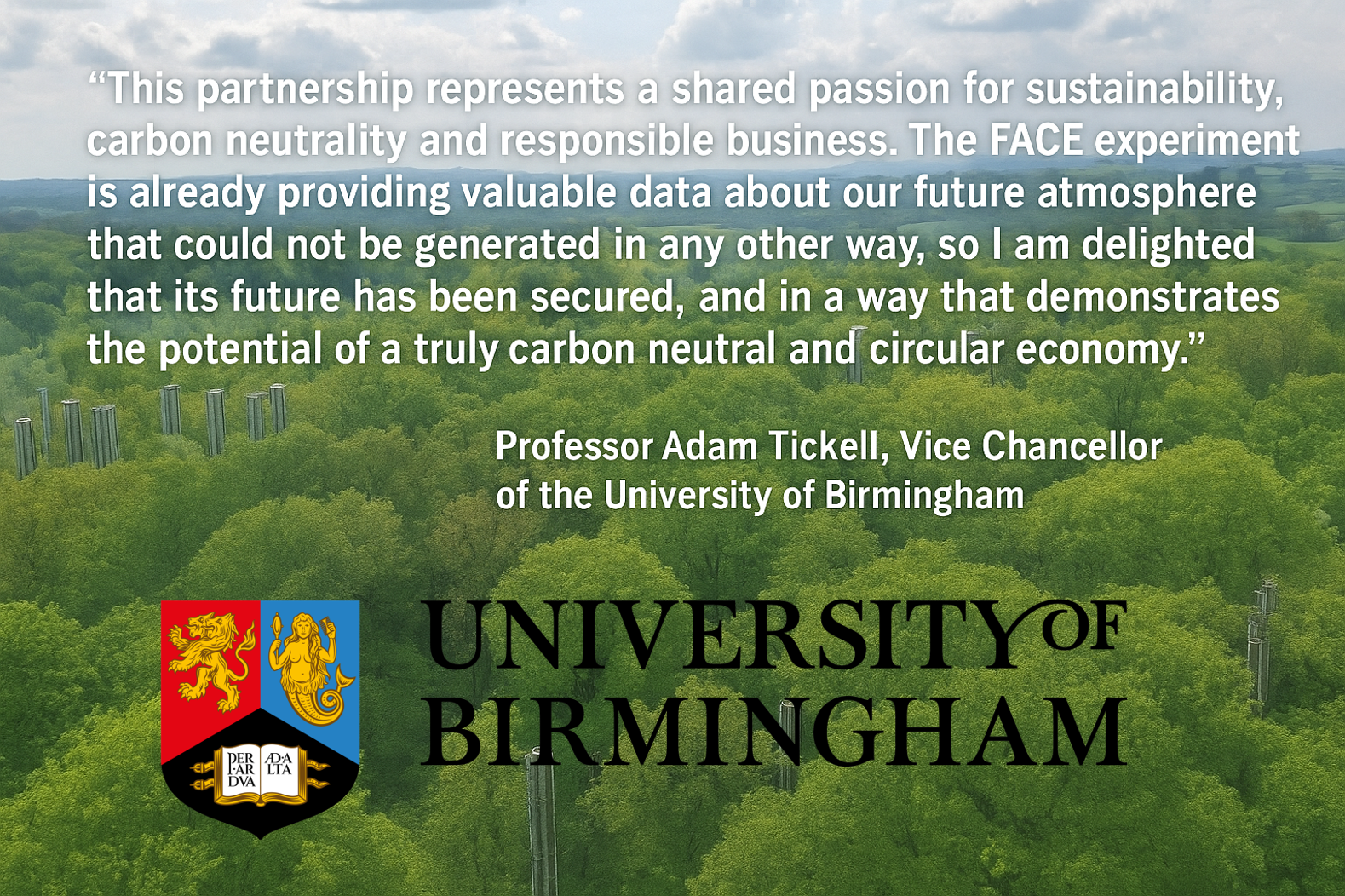RenEco's Groundbreaking Climate Research with Sustainable CO2 Supply
RenEco is proud to announce its partnership with the University of Birmingham's Birmingham Institute of Forest Research (BIFoR), supplying sustainable, food-grade CO2 to the world-renowned FACE (Free Air Carbon Dioxide Enrichment) experiment in rural Staffordshire.
The FACE experiment investigates the long-term effects of elevated CO₂ at levels expected by 2050 on mature forests. Rising costs had threatened the continuation of this critical research, but RenEco’s involvement ensures the experiment can now continue uninterrupted until at least 2031. Early results have already shown changes to the leaves of trees in the CO2 rich air, increasing their rates of photosynthesis.
CO2 is being delivered from RenEco’s Goosey Lodge facility in Northamptonshire, the UK's largest anaerobic digestion plant for food surplus. The facility, capable of producing over 17,000 tonnes of food-grade CO2 annually, began deliveries on April 1, 2024 the start of the experiment’s measuring season. This CO2 is derived from a circular process that converts food and agricultural waste into biogas, a mixture of methane and CO2. Through advanced separation and liquefaction, both methane and CO2 are refined for use as clean energy and industrial-grade products, replacing fossil derived alternatives.
In recognition of the research's global significance, RenEco is also providing £150,000 to upgrade FACE's operating systems, alongside funding six fully supported PhD scholarships beginning in September 2024. These RenEco BIFoR PhD studentships will focus on critical areas including carbon and nutrient cycling, decarbonisation, clean energy, bioremediation, and carbon capture.
RenEco's partnership with the University of Birmingham aligns with their core mission, transforming food surplus into sustainable resources that power innovation. This collaboration enables world-class research while reducing the carbon footprint of both RenEco and BIFoR FACE by approximately 6,000 tonnes per year.
RenEco remains committed to developing advanced, waste-derived products and sees this collaboration as a model for how industry and academia can work together to address the climate crisis and accelerate progress toward net zero.

